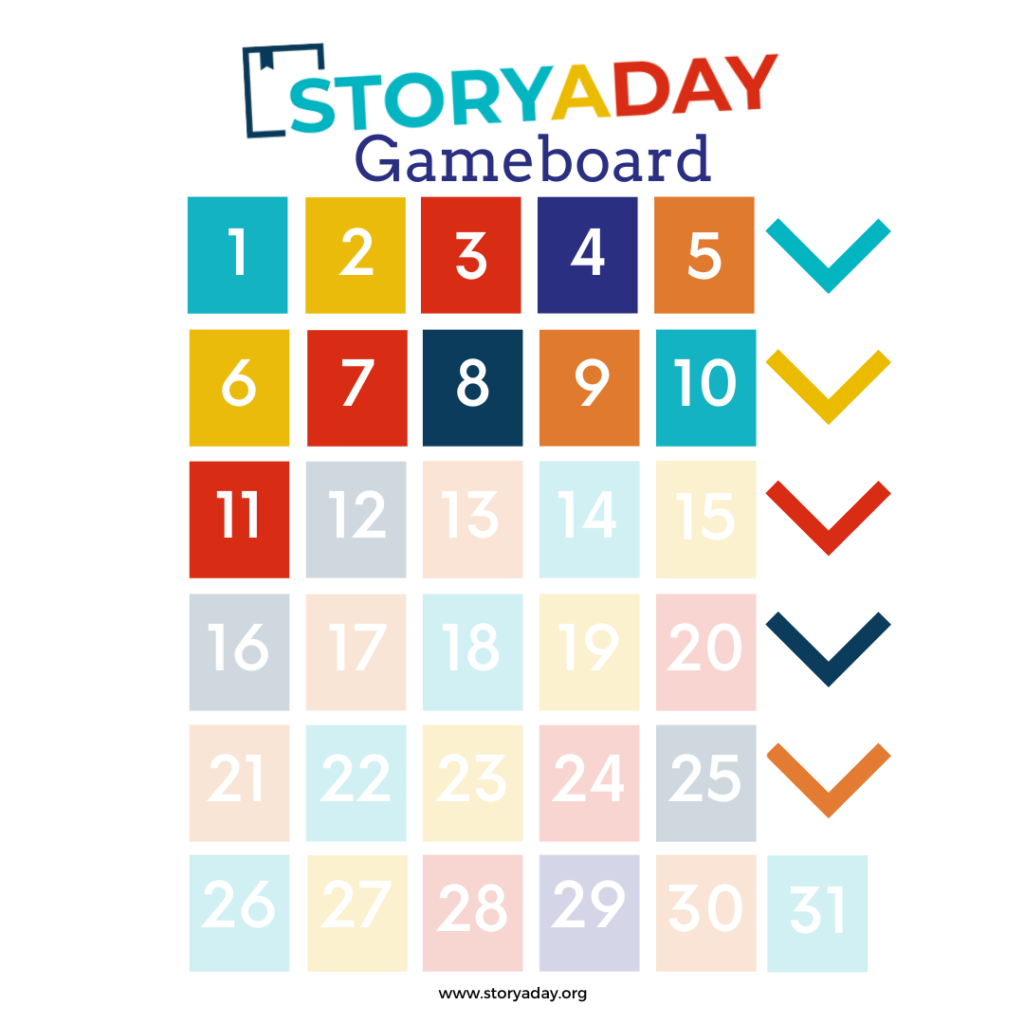Everything is material…when you’re a writer. Also: my theory about why it’s a good thing for humanity that we are writing instead of doing…other things….
Keep writing,
Julie
A vlog about how my StoryADay May is going…
Everything is material…when you’re a writer. Also: my theory about why it’s a good thing for humanity that we are writing instead of doing…other things….
Keep writing,
Julie
A vlog about how my StoryADay May is going…
Food is more than nourishment .in today’s writing prompt from Marta Pelrine-Bacon
Food!
People have strong feelings about certain foods.
Have your characters battle over food. There are so many ways we fight about food.
Or have a character who refuses to love their traditional food and suffers the consequences.
Marta is an author and artist making stuff up as she goes along.
Join the discussion: what will you do with today’s prompt OR how did it go? Need support? Post here!

Here’s your next Game Piece. save the image and share on social media with #storyaday
Prefer paper crafts? Here’s the cut & paste version
A vlog about how my StoryADay May is going…
And again, the best laid plans o’mice and men, as my buddy Rabbie Burns used to say…
Keep writing,
Julie
A vlog about how my StoryADay May is going…
A vlog about how my StoryADay May is going…
Week 1 is a wrap!
Today I was pretty happy with the very short story I wrote. When I got to the end I discovered something interesting, which I share in this video.
Also: now’s a great time to assess what went well last week and what you’ll keep/do differently during this coming week of the challenge (I talk about this, too, in this video)
Keep writing,
Julie